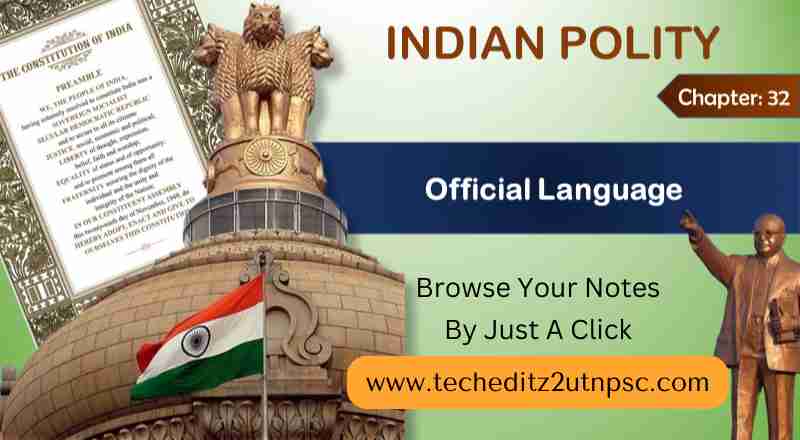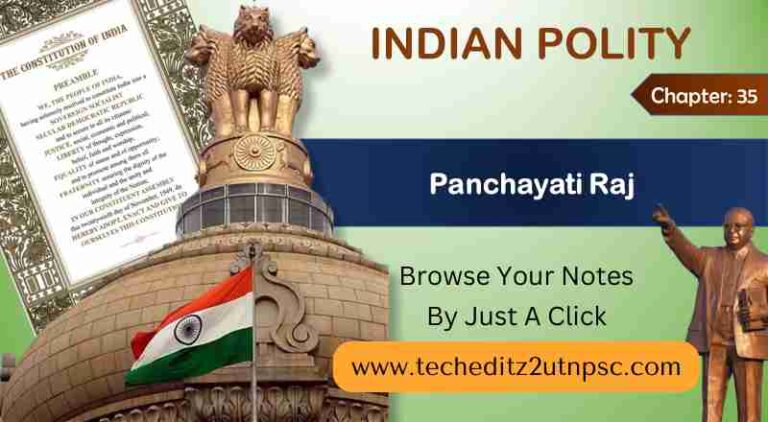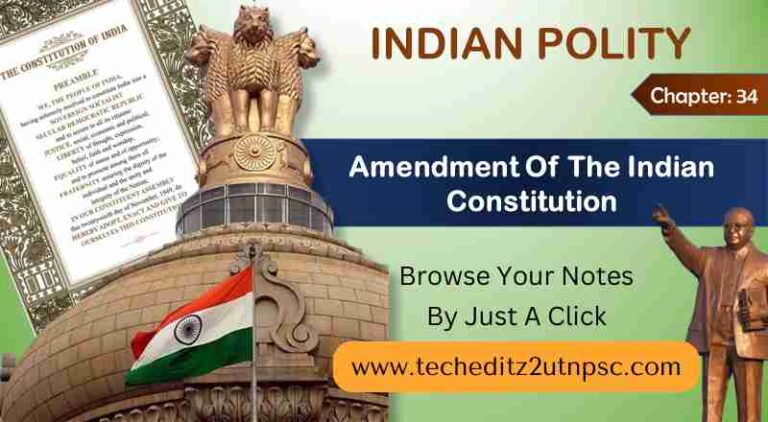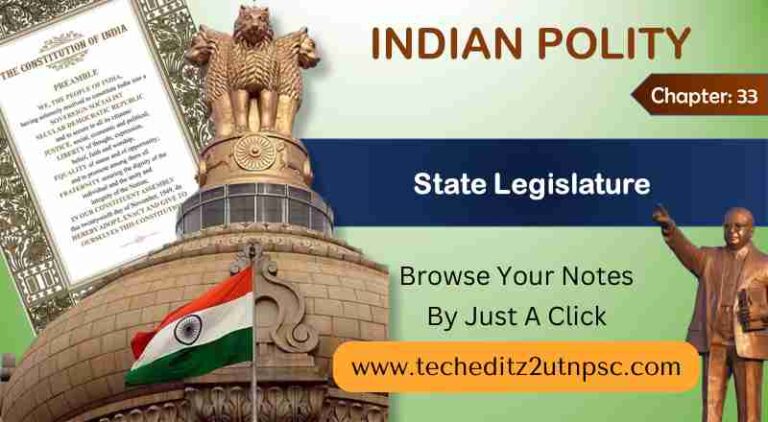support@techeditz2utnpsc.com | 8300-921-521

Official Language
Indian Polity
Chapter 32: Official Language
Official languages:
- The Official languages are mentioned in the 8th Schedule of the Constitution.
- The official language is mentioned in the part XVII of the Indian Constitution.
- The original Constitution mentioned 14 languages as the official languages.
- This is covered in the articles from 343 to 351.
- Hindi is the official language of the Union.
- The English language was permitted for not more than a period of 15 years from the date of commencement of the Constitution for all the official purposes of the Union.
- Official Language Act, 1963: The English language was continued as the official language along with Hindi by enacting Official Language Act, 1963.
- Article 343: The official language of the Union shall be Hindi in Devanagari script.
- The Official Language Commission is appointed by the President.
- The first Official Language Commission was appointed in the year 1955.
- B G Kher was the chairman of the first Official Language Commission.
- Every bill that is introduced in the Parliament is also accompanied by a Hindi translation.
- The language that is used in Supreme Court is English only.
- The state legislatures were permitted to adopt any one or more than one languages.
- A state can adopt more than one language.
- The Parliament can provide that all the proceedings in Supreme Court and High Courts are to be in English.
- The Governor with the prior consent of the President can authorize the use of Hindi or any other language of the state in the proceedings of the concerned High Court.
- All bills, acts, ordinances, orders, rules, regulations and Bye-laws at the central and states to be in English.
- The state legislature can prescribe the use of any language other than English with respect to bills, acts, ordinances, orders, rules, regulations, or bye-laws, but a translation of the same in the English language is to be published.
- An aggrieved person who belongs to the linguistic minorities has the right to submit a representation in any language used in the Union or states for the redress of grievances to any authority under the central or state government.
- Every state should provide adequate facilities for instruction in the mother tongue at the primary stage of education.
- The President should appoint a special officer for linguistic minorities to investigate all matters relating to the constitutional safeguards for linguistic minorities and to report to him.
- These reports are placed in front of the Parliament and sent to the concerned state governments.
How Many Languages Are Present In The 8th Schedule?
- In the original constitution only 14 languages were mentioned.
- At present the number of languages mentioned in the 8th schedule is 22.
- Sindhi was the 15th language added through 21st amendment in the year 1971.
- Konakani, Nepali and Manipuri languages were added through the 71st amendment in the year 1992.
- The next 4 languages that added to the 8th schedule were Bodo, Dogri, Maitihli and Santhali.
- The last four languages were added through 100th amendment.
The List Of The Languages Mentioned In The 8th Schedule:
- Assamese
- Bengali
- Bodo
- Dogri
- Gujarati
- Hindi
- Kannada
- Kashmiri
- Konkani
- Maithili
- Malayalam
- Manipuri
- Marathi
- Nepali
- Oriya
- Punjabi
- Sanskrit
- Santhali
- Sindhi
- Tamil
- Telugu
- Urdu
Miscellaneous:
- In the year 2010 the Gujarat High Court observed that though the majority of the people in India have accepted Hindi as a national language there was nothing on record to suggest that any provision has been made or order issued declaring Hindi as a national language of the country.
Visit Our YouTube Channel For More Free Videos: Click Here


